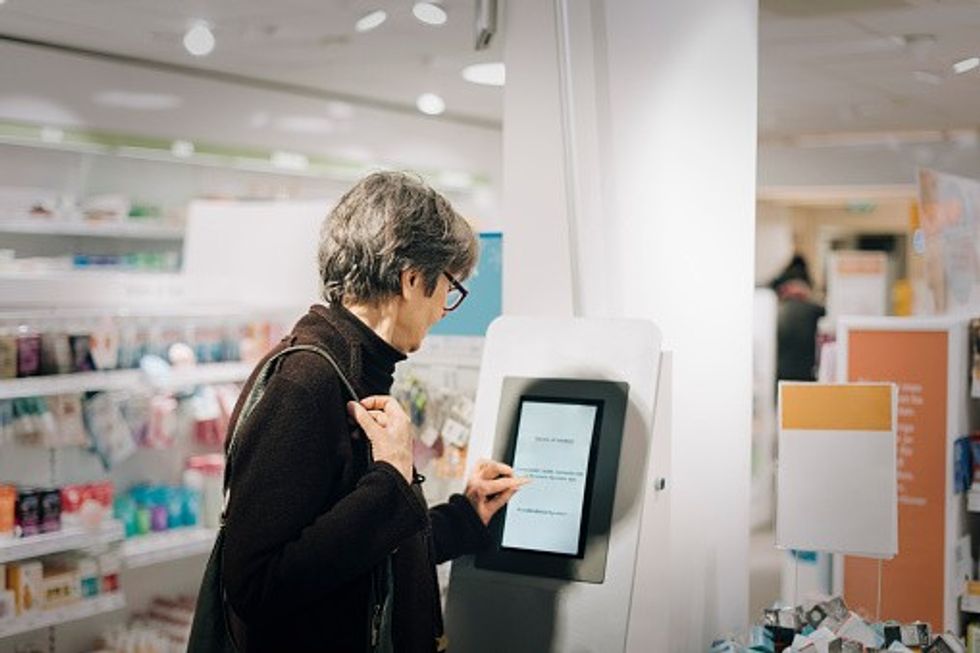The government’s elective care reform plan also presents an excellent opportunity to enhance the role of pharmacy technicians, says Numark chairman Harry McQuillan
Community pharmacies can effectively deliver ENT services outlined last week in the government’s elective care reform plan, but Numark has emphasised that this is dependent on "adequate workforce planning and funding".
The organisation also underscores the importance of “fostering collaboration across primary care networks and providing clear service specifications and training programmes”.
The government recently published the "Reforming Elective Care for Patients" plan, with the aim to have 92 per cent of patients receiving treatment within 18 weeks by March 2029.
As one of the steps to reduce patient waiting times, it proposes expanding non-surgical community-based ENT [ear, nose and throat] services, maximising Pharmacy First approaches, and developing one-stop clinical models to support patients needing ear care and patients with rhinitis.
Professor Harry McQuillan, chairman of Numark, said that while many community pharmacies do not currently offer dedicated ENT services, they play an essential role in managing ENT-related conditions such as earwax build-up, ear infection, sore throat, and hay fever and sinus-related symptoms.
He says: “Through Pharmacy First and minor ailment schemes, pharmacies already provide NHS advice, over-the-counter treatments and prescriptions, as well as being perfectly placed to signpost to appropriate care pathways where necessary.”
In an exclusive interview with Pharmacy Business, McQuillan further discussed the opportunities and challenges in expanding community pharmacy’s role in ENT care.
- What is your view on expanding community-based, non-surgical ENT services?
Numark fully supports the expansion of community-based ENT services as outlined in the plan. Community pharmacies are uniquely positioned to deliver care at the heart of communities, easing pressure on GP surgeries and secondary care.
The plan also presents an excellent opportunity to enhance the role of pharmacy technicians. By taking on responsibilities such as triaging and reviewing patients, pharmacy technicians can free up pharmacists' time to focus on prescribing appropriate treatments. This team-based approach ensures patients receive efficient, high-quality care while maximising the skillsets within pharmacy teams.
Q. What challenges do you foresee in integrating community pharmacies into the delivery of ENT care?
The integration of ENT services into community pharmacy will require careful consideration of several challenges.
Adequate workforce and funding: Pharmacy teams are already under significant strain due to workload pressures. Adequate workforce planning and funding will be essential to ensure the capacity to deliver new services.
Spoke and Hub dispensing: The introduction of the delayed “Spoke and Hub” dispensing will also allow full exploration of how the process of medicines assembly is best utilised to allow service expansion at the same time as maintaining the supply function from the community pharmacy network.
Accredited training programmes: Both pharmacists and pharmacy technicians will need access to accredited training programmes to ensure they are equipped to deliver ENT services safely and effectively and to bolster confidence in the general public that they are well equipped to deliver such services.
Stronger integration with GPs: The pharmacist’s role here, as Numark sees it, is one of oversight as most treatments will be technical in nature. Stronger integration with GPs and secondary care providers is necessary to establish referral pathways, share patient records, and avoid duplication of care.
Q. What additional resources or support do community pharmacies need to effectively implement the expanded role in ENT care?
To deliver ENT services effectively, community pharmacies will require appropriate remuneration, including capital investment in equipment like otoscopes and ear irrigation systems.
Comprehensive and ongoing clinical training for both pharmacists and pharmacy technicians will be important to support triaging and patient reviews.
Access to shared patient records will be critical to ensure seamless communication with other healthcare providers and lastly, support from the government to educate the public about the availability of ENT services in pharmacies is essential to encourage uptake.
Concluding remark
McQuillan believes that the sector can provide an efficient and patient-centred approach to ENT care.
However, he underscores that community pharmacy remains an “untapped resource” in the NHS, and expanding its role is a step in the right direction.
“With the right framework, this initiative has the potential to enhance patient care and alleviate pressures on the wider healthcare system,” he adds.


















 A woman using kiosk at pharmacy store gettyimages
A woman using kiosk at pharmacy store gettyimages  Pharmacist examining commissioning machine in pharmacy gettyimages
Pharmacist examining commissioning machine in pharmacy gettyimages 

 Pharmacyexprezz offers blood tests, travel vaccinations, earwax removal, cryotherapy and more.
Pharmacyexprezz offers blood tests, travel vaccinations, earwax removal, cryotherapy and more. The team at Pharmacyexprezz continues to grow
The team at Pharmacyexprezz continues to grow